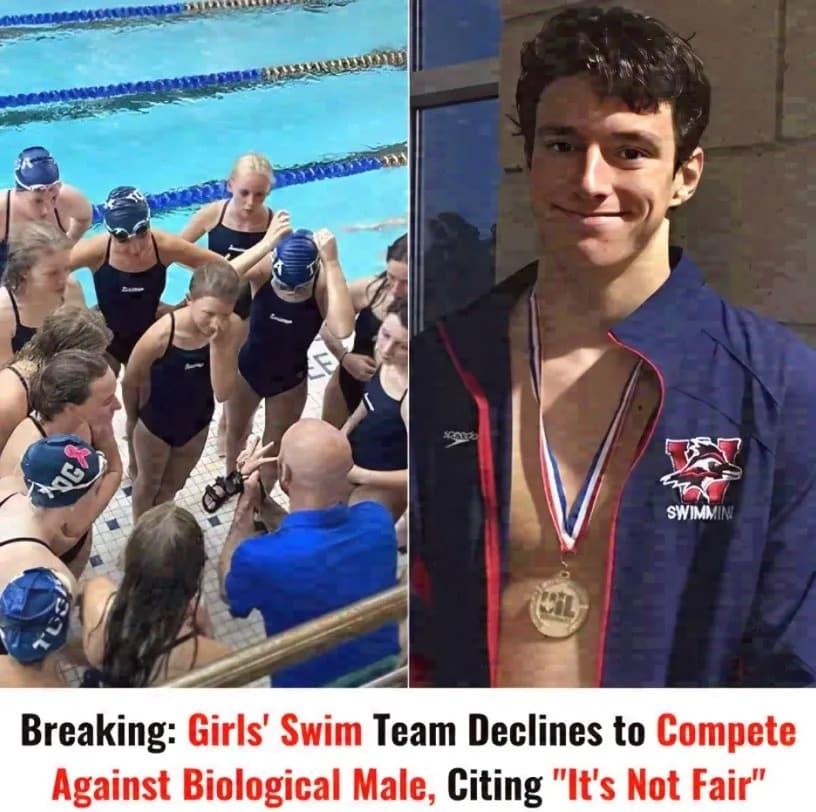In a move that’s igniting nationwide discussion, a high school girls’ swim team has declined to compete against a transgender athlete—assigned male at birth—who was scheduled to race in an upcoming meet. The team says their decision is based on fairness, not discrimination, and stems from what they see as a competitive imbalance.

The controversy centers around a swimmer who identifies as female and has been permitted to compete in girls’ events at the state level. According to reports, the athlete has been setting new records in the women’s division, prompting concerns from fellow competitors. In a public statement, the girls’ team explained:
“It’s not fair. We’ve trained for years to succeed in this sport, and it’s hard to accept losing to someone who has a biological advantage.”
Their decision has sparked passionate reactions from all sides—athletes, parents, coaches, and lawmakers alike. Supporters of the swim team see the refusal as a stand for preserving fairness in women’s sports. They argue that even with hormone treatments, transgender women may retain physical advantages in areas like muscle mass, endurance, and speed.

One parent shared:
“We support equal rights, but equality doesn’t mean our daughters should have to compete against someone with a clear physical edge.”
Meanwhile, advocates for transgender inclusion argue that trans women should be allowed to compete in alignment with their gender identity, especially when medical guidelines and hormone therapy protocols are followed. They emphasize that inclusion is key to equity and acceptance in sports.
The situation is now feeding into a broader political and legal conversation. Several states have introduced or passed legislation addressing whether transgender athletes can participate in sports that match their gender identity. The issue has reached the courts, with both sides fighting for policies they believe best balance fairness and inclusion.

Some lawmakers have backed the swim team’s decision, seeing it as necessary to protect the integrity of women’s athletics. Others have expressed concern that such actions could fuel division and exclusion.
This incident underscores the ongoing tension between competitive equity and inclusive policies in sports. With more transgender athletes seeking to participate in gender-affirming categories, sports organizations are being pushed to clarify their rules. The NCAA and various state athletic bodies have begun to roll out new guidelines, though consensus remains elusive.

The swim team’s stance has placed them at the center of a national conversation—one that’s shaping the future of high school and collegiate sports. Their decision may set a precedent that influences how athletic associations and educational institutions handle similar cases going forward.
As this story unfolds, it continues to raise critical questions about identity, competition, and the evolving standards of fairness in sports.



